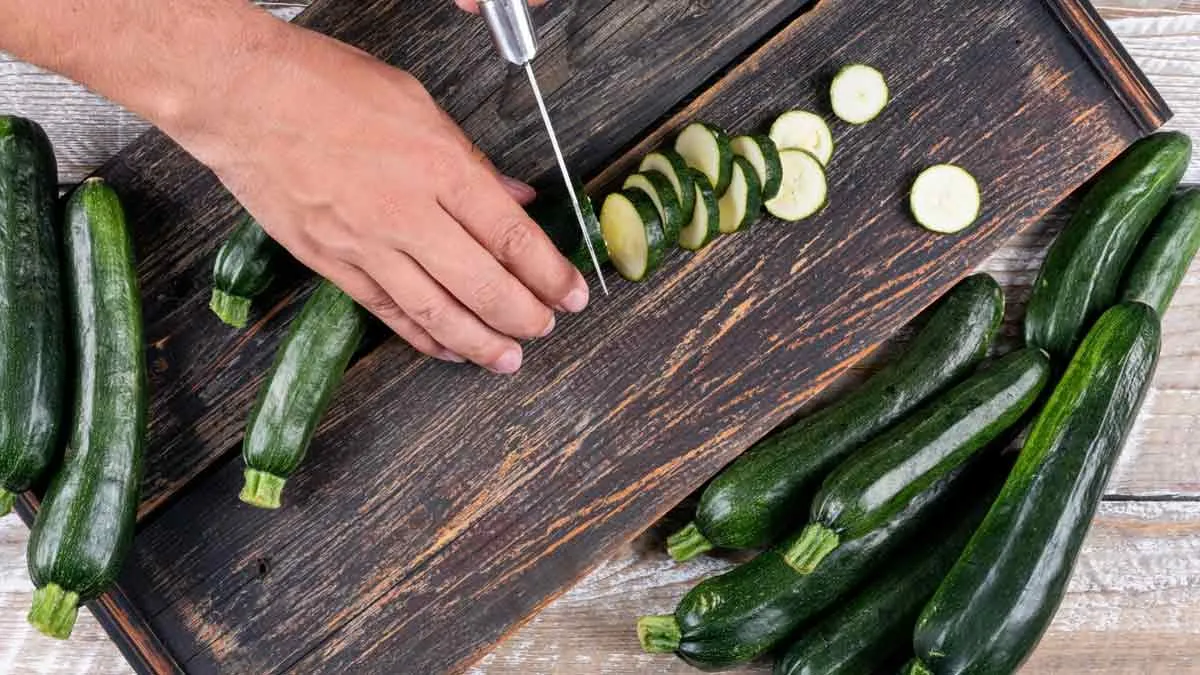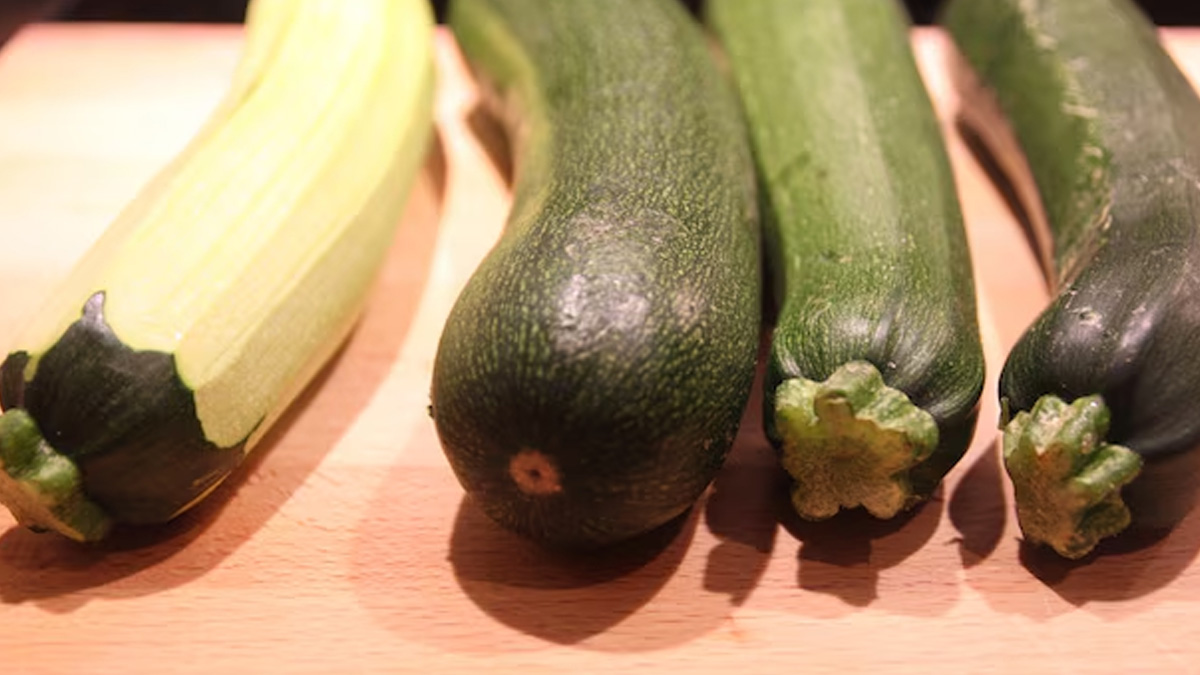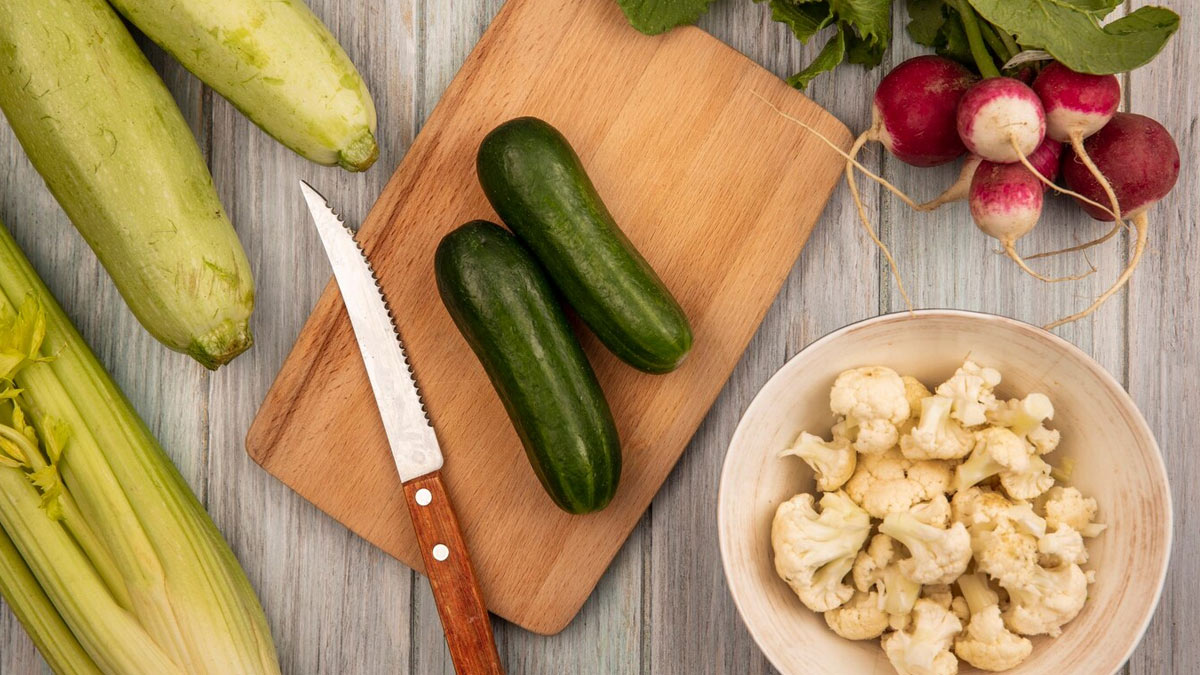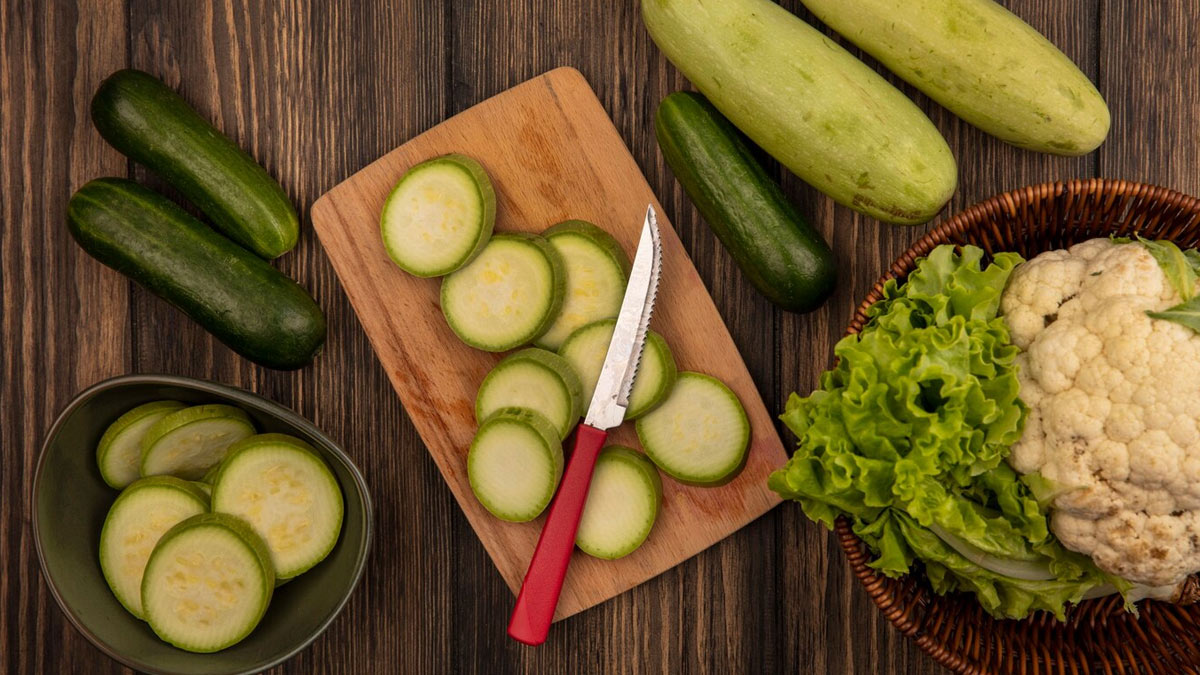
Summer is here, and the need to stay hydrated is more important than ever. While drinking plenty of water is the answer to it, consuming hydrating foods and fruits can be beneficial too. Zucchini, for instance, is a refreshing vegetable known for its high water content and richness in essential vitamins, minerals, and antioxidants. However, it is important to consider the possibility of zucchini poisoning, which refers to food poisoning caused by consuming zucchini or other squash that contain high levels of cucurbitacins, a toxic compound. Here’s all you need to know about the same.
Table of Content:-
Also Read: 8 Health Benefits of Zucchini You Should Know
What Causes Zucchini Poisoning?

Zucchini, also known as courgette, is a widely consumed vegetable that is generally considered safe and nutritious. However, in rare cases, it can cause poisoning due to the presence of toxic compounds. Dr Anjana Kalia, Ayurvedic Doctor and Nutritionist, Anjana Kalia’s Diet Clinic, Delhi, says, “Zucchini poisoning mainly occurs due to the presence of cucurbitacins, which are naturally occurring compounds found in some members of the cucurbit family, including zucchini, cucumbers, pumpkins, and squash.” She adds that these compounds are bitter and toxic in high concentrations.
A 2024 study published in the Polish Archives of Internal Medicine shed light on a surprising case of food-related poisoning. It involved a 54-year-old woman — otherwise healthy — who rushed to an emergency department in the Czech Republic with severe abdominal pain, vomiting, and bloody, watery diarrhoea. By the next day, doctors discovered she also had liver damage.
Puzzled by the sudden and intense symptoms in a woman with no major health issues, the medical team dug deeper to find the cause. Their investigation eventually led to an unexpected culprit: a batch of unusually bitter zucchini bread the woman had eaten just before falling ill. She was eventually diagnosed with cucurbitacin poisoning.
“Cucurbitacin poisoning happens when these compounds interfere with normal cellular processes, leading to tissue irritation, especially in the gut,” explained Dr Babeta Čápková, co-author of the case study and a physician at Tomas Bata Hospital in Zlín, Czech Republic. She added, “A bitter taste is often the first — and sometimes the only — warning sign of high cucurbitacin levels."
Explaining further, Dr Kalia (who was not part of the study) shares, “The production of cucurbitacins in zucchini is usually suppressed through selective breeding in commercial varieties. However, certain factors can lead to an increase in these toxins, such as:
- Cross-pollination with wild cucurbits: This can occur in home gardens, leading to the development of toxic zucchini.
- Environmental stress: Extreme temperatures, drought, or poor soil conditions can trigger plants to produce cucurbitacins as a defence mechanism.
- Genetic factors: Some heirloom or non-commercial varieties may naturally have higher levels of cucurbitacins.
Symptoms Of Zucchini Poisoning

The symptoms of zucchini poisoning typically appear shortly after consumption and can vary in severity, according to Dr Kalia. The common symptoms include:
- Strong bitter taste while eating the zucchini
- Nausea and vomiting
- Diarrhoea
- Abdominal pain and cramping
- Dizziness or weakness
Medical help should be sought if:
- Symptoms persist for more than 24 hours.
- There are signs of severe dehydration (dry mouth, dizziness, low urine output).
- Vomiting or diarrhoea becomes uncontrollable.
- Symptoms worsen despite home treatment.
Also Read: THIS Detox Water Is Your Sure-Shot Way to Lose Those Extra Inches Around Your Waist
How To Prevent Zucchini Poisoning And What To Do If You Suspect It?

It is important to note that not all zucchinis cause poisoning. The risk is primarily associated with:
- Heirloom or non-commercial varieties that naturally produce cucurbitacins.
- Homegrown zucchinis that may cross-pollinate with wild cucurbits, increasing toxicity levels.
- Wild zucchinis or gourds that naturally contain high amounts of cucurbitacins should be avoided.
- Commercially available zucchinis are bred to be non-toxic and undergo quality control, making them generally safe for consumption.
One can prevent zucchini poisoning by following the below steps:
- Check for bitterness before eating: if a zucchini has an unpleasantly bitter taste, do not consume it.
- Avoid consuming wild or unknown zucchini varieties: If unsure about the source, it is best to discard it.
- Be cautious with homegrown zucchinis: Use seeds from reliable sources and monitor plants for stress.
- Maintain plant health: proper watering, good soil quality, and avoiding plant stress can reduce the production of cucurbitacins.
- Buy from trusted sources: store-bought zucchinis are generally safe due to controlled breeding.
- To stop the worsening of the condition, here are some steps to take:
- Stop eating immediately if the zucchini tastes bitter.
- Drink plenty of fluids to stay hydrated, especially if experiencing vomiting or diarrhoea.
- Monitor symptoms and seek medical help if they persist or worsen.
- Avoid taking anti-diarrhoeal medications without medical advice, as they may prolong symptoms.
Conclusion
While zucchini is usually a safe and healthy addition to meals, it’s important to stay aware of the rare risk of cucurbitacin poisoning. Paying attention to any unusually bitter taste is key — it’s the body’s early warning sign to stop eating and stay safe. Most commercially grown zucchinis are carefully bred to avoid high toxin levels, but extra care should be taken with homegrown or wild varieties. If you do experience symptoms after eating zucchini, don’t ignore them — stay hydrated, monitor your condition, and seek medical help if needed.
Also watch this video
How we keep this article up to date:
We work with experts and keep a close eye on the latest in health and wellness. Whenever there is a new research or helpful information, we update our articles with accurate and useful advice.
Current Version
